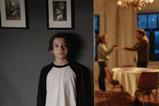Kate Orson believes what we allow our children to watch on TV can present a parenting challenge but with a bit of work, this is easily overcome

If you aren’t already familiar with the cartoon Bluey, it’s about the often hilarious escapades of a blue heeler puppy, and her family. It’s been banned in some Christian households because parents have found their children imitating the puppies’ behaviour. Parents have objected because Bluey and her sister often complain when they have to do something, or make fun of their dad with zero consequences. One parent educator Sophie Giles wrote in the Sun that the show ‘normalises tantrums,’ because the characters get upset when their parents make requests. (For one parent’s review of Bluey, go here )
In Paul’s letter to the Ephesisians he wrote, ‘children, obey your parents in the Lord for this is right. Honour your father and mother’.(Eph. 6:1,2). Should Christian parents be wary of TV programmes that seem to encourage the opposite?
Why do children misbehave?
Firstly, I think it’s important to consider the root cause of why children misbehave. The limbic system, the part of the brain involved in emotional response, can be thought of as a bit like a radar. It’s constantly scanning the environment looking for an adult to connect to as their safe base. If a child doesn’t have that strong sense of connection, or if emotional upset clouds their thinking, then the prefrontal cortex, the part of the brain responsible for rational, logical thinking, doesn’t function well.
Children have a deep inner sense of right and wrong, it’s just that when their emotional brain gets in the way, they often lack the impulse control to do what they know deep down is good behaviour. So, the most effective way to help children get back on track, is to help restore their sense of connection to an adult so they feel safe, and can think well again.
After watching a show like Bluey, a child might have got some ideas about different ways to act out, or copy the behaviour, but the root cause of misbehaviour goes deeper. Maybe they are processing separation anxiety, or a stressful day at nursery or school. Feelings of disconnection can come from traumatic experiences or just from the everyday disconnection that is an inevitable part of life in a fallen world.
One to one is important
If you notice your child acting out after watching a certain TV programme it might make sense to stop watching it for a while, but also to focus on giving them 1-1 attention to fill their connection cup. This could be in the form of ‘special time.’ Set a timer for 10-15 minutes and tell your child it’s ‘special time’ and they can choose to do anything they want for this set period of time. Turn your phone off and give your child your full attention. Done regularly, this helps a child feel safe and secure, knowing there’s a place to come to soak up the connection they need. Done in small doses means your own connection cup doesn’t drain completely dry!
One thing I think it’s important to note is that tantrums and crying are normal behaviour in children. Whereas traditional parenting has often been about ignoring emotional outbursts so as not to encourage them, this can often have a detrimental effect. Crying is a healthy and natural way for expressing emotion. Being with your upset child, and empathising and supporting them through their upset, can help restore their sense of connection to you. Knowing this can also be helpful when it’s time to set a limit, to finish watching TV, or when the timer goes off because, special time has ended. You have not failed if your child has an emotional outburst, it’s actually a healthy sign that they feel secure enough to express their feelings with you. Lovingly empthaisising while keeping that limit can help them get back on track.
When it comes to watching TV programmes with misbehaving children, I think we need to think and pray about what is right for our individual circumstances. Media can have a strong influence, but the parent-child relationship can be powerful immunity against the false messages in the world. While we want to be aware of how the enemy can use media like ‘a prowling lion looking for anyone he can devour,’ we can also rest assured that our relationship with God can help guide us to protect our children from influence.































